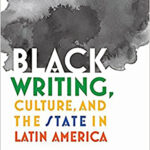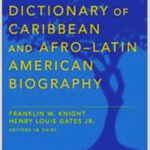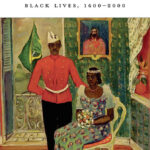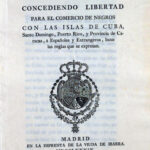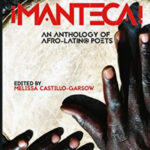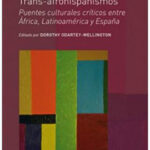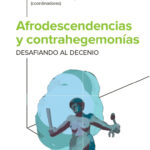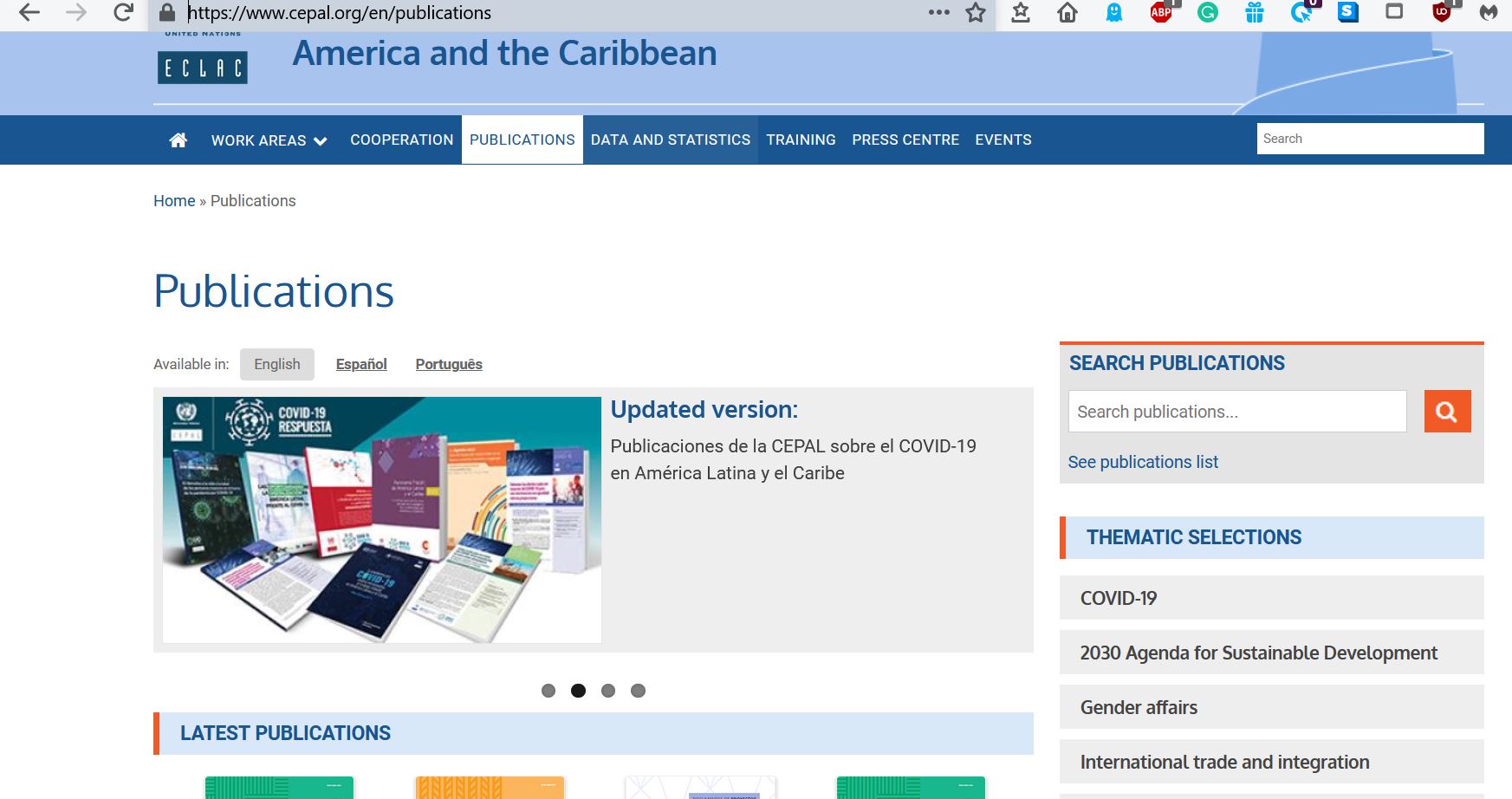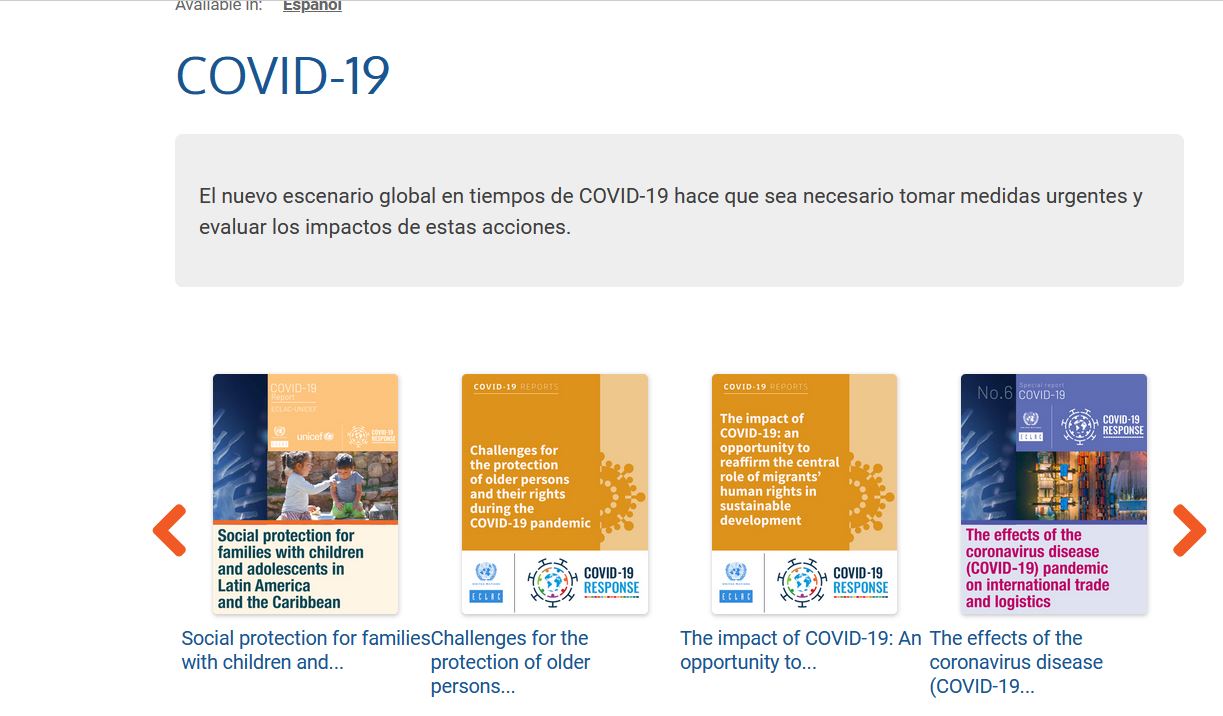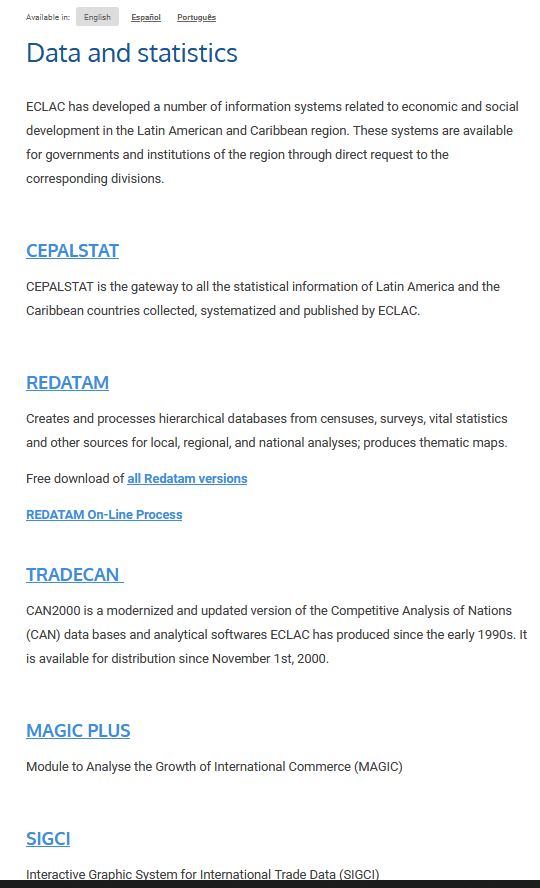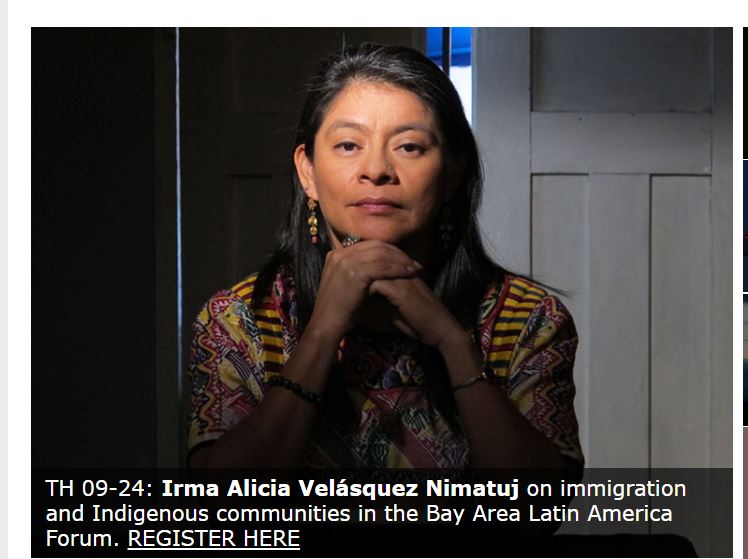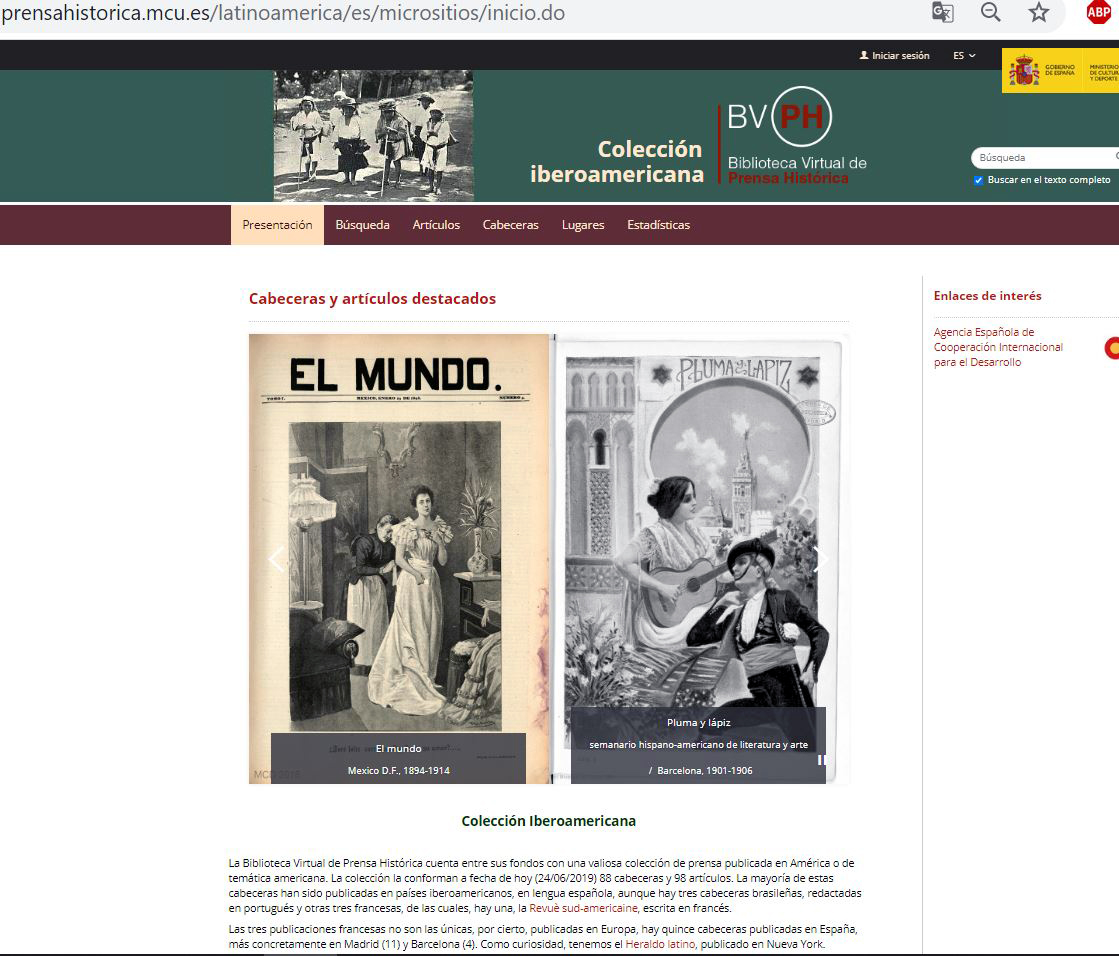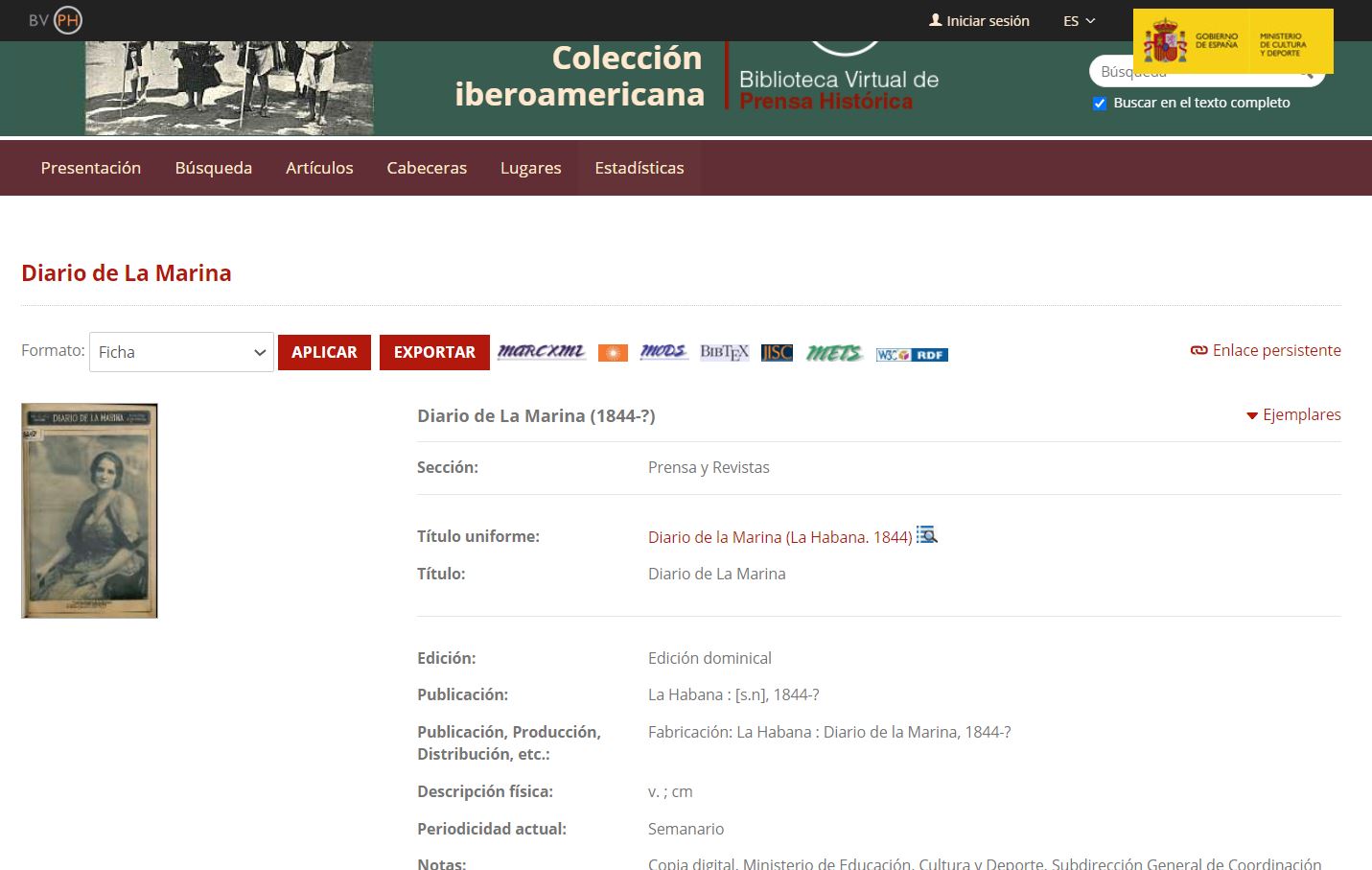Tag: Latin America
Primary Sources: Cuban Periodicals: Cultural Magazines Published by Casa de las Américas, 1960–2009

Save the date: Documentary Screening: “Una Escuela llamada América”- September 17, 2021
The library invites you to attend a virtual documentary screening of “Una Escuela llamada América” and a conversation with the director Antonia Mardones Marshall, Ph.D. Candidate in Department of Sociology on Friday, September 17, 2021, from 3 pm to 5 pm.
This event is virtual, and all are welcome to attend with prior registration. This documentary screening event is co-sponsored by UC Berkeley Library, the Center for Latin American Studies, and Berkeley Interdisciplinary Migration Initiative.
Register at
ucberk.li/escuela-event

[Library Trial] Cuban Periodicals: Cultural Magazines Published by Casa de las Américas, 1960–2009
The Library has set up a thirty-day trial of Brill’s database of Cuban Periodicals. It might be accessed after authenticating here: http://ucberk.li/cubanperiodicals
Cuban Periodicals: Cultural Magazines Published by Casa de las Américas, 1960–2009

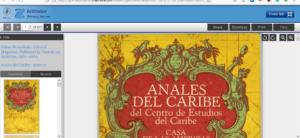
4th Annual Nahuatl Conference at UCLA (Friday, June 4, 2021)
Usually, we do not post about what is happening at the other University of California campuses. However, this announcement piqued my interest as it deals with the Nahuatl language and history. One advantage the pandemic has offered us is to virtually attend the conferences instead of traveling at long distances from the comfort of one’s place. One of my faculty mentors was Dr. Kevin Terraciano at UCLA, and his works on the indigenous languages- especially Nahuatl are known all over the country. Please register here.
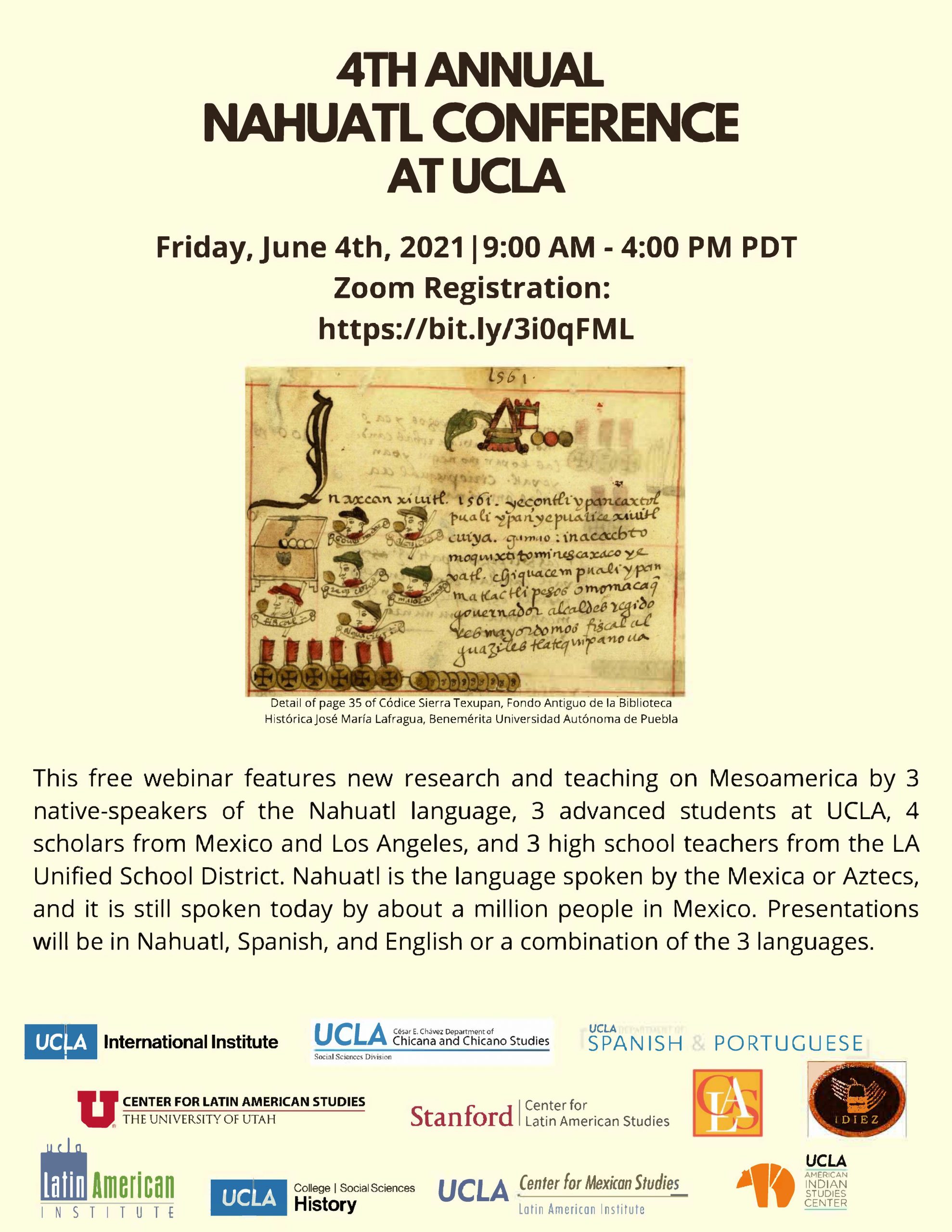
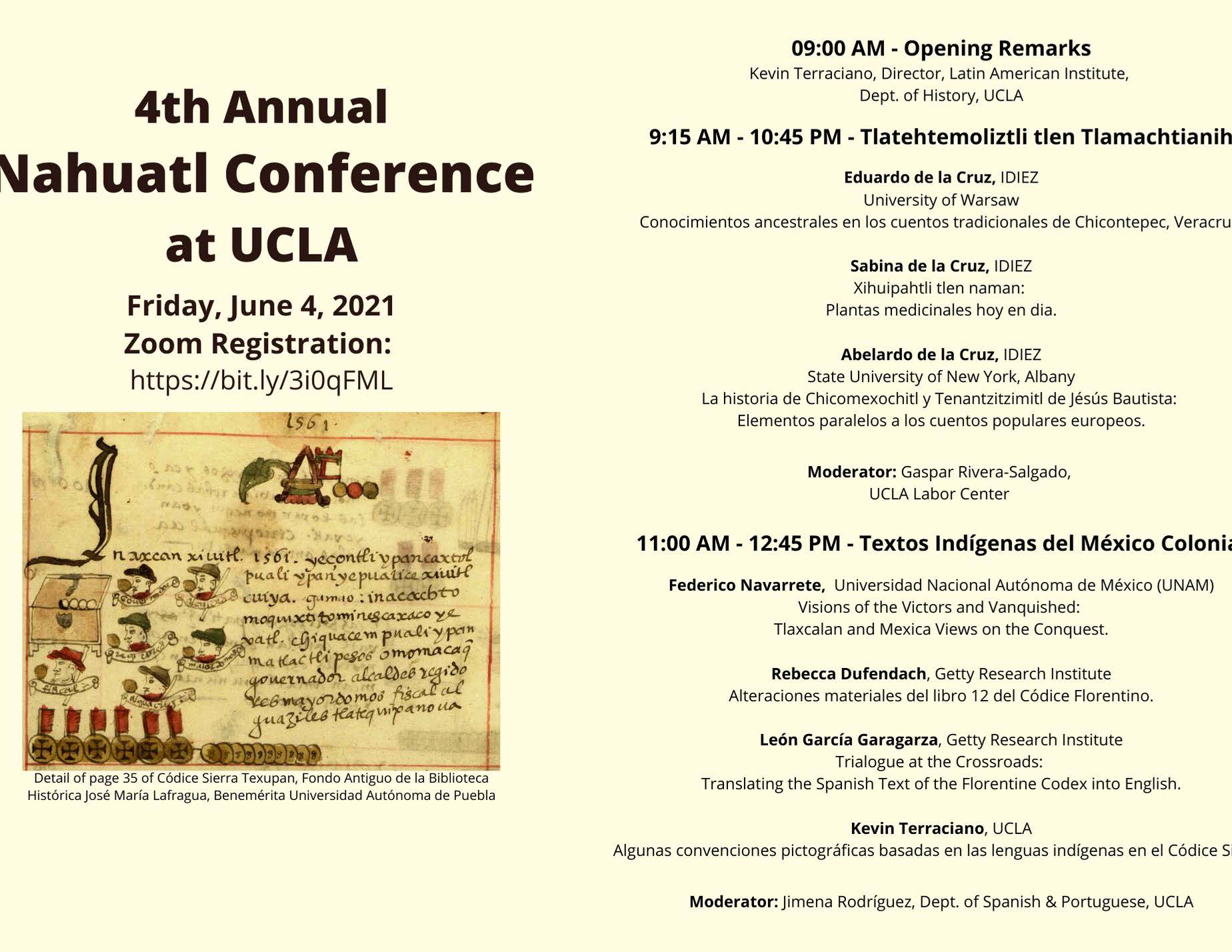
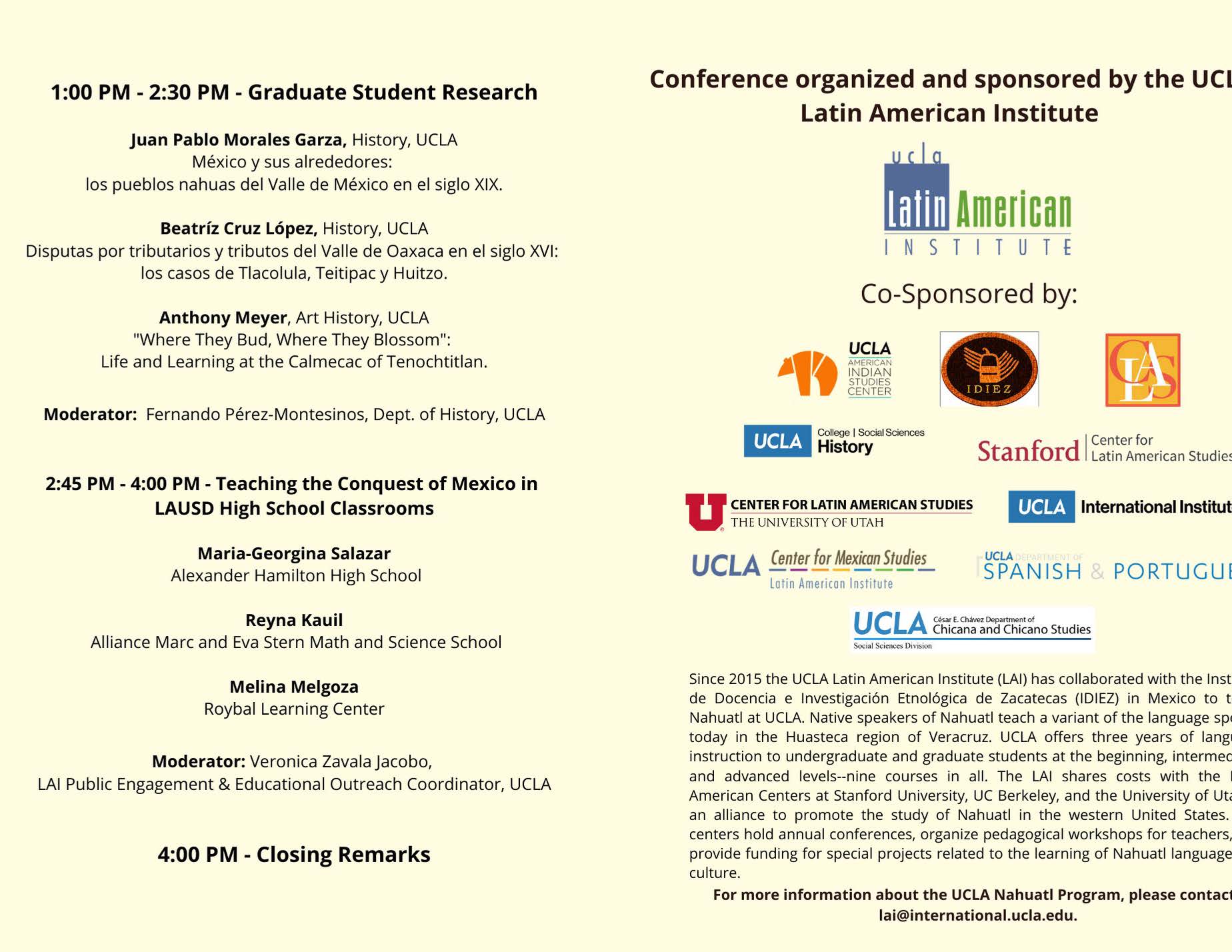
Open Access Journal: ESTUDIOS DE CULTURA NÁHUATL
As some librarians scramble to collect materials in endangered languages and continue competing professionally for acquiring difficult to find low print materials in the indigenous studies and regional languages, they sometimes end up overlooking readily available open access sources. These sources can enrich students’ and faculty’s academic experiences. This is the first post in a series of occasional posts highlighting some of the well-known academic journals that deal with indigenous studies. One such Mexican journal is Estudios De Cultura Náhuatl.
The journal site’s self-description is as follows, “Estudios de Cultura Náhuatl es una revista científica del Instituto de Investigaciones Históricas de la Universidad Nacional Autónoma de México. Difunde trabajos de investigación sobre la lengua y la cultura de los pueblos de habla náhuatl de ayer y hoy. Con más de sesenta años desde su primera aparición, Estudios de Cultura Náhuatl es un referente ineludible en su campo de estudio.” Below is the landing page of the journal. If one clicks on the photo below, you can see on the right side of the website, indexed issues. At the time of writing this post, there was a full-text access and index to issues of the journal beginning 1959.
 Image 1: The landing page of the Estudios de Cultura Náhuatl
Image 1: The landing page of the Estudios de Cultura Náhuatl
In times of Corona: Celebrating African American History Month and Latin America
As we celebrate African American History Month in the United States, America’s racialized past cannot be ignored nor forgotten. Latin America also has a large population of Afro-Latinos and this post is dedicated to providing our readers with some of the highlights from UC Berkeley Library’s collections from Latin America that deal with the nuanced history of Africans in Latin America. We have chosen only a few public domains and open access books that can be read online in times of ongoing COVID-19 pandemic. Also, there are some books that are not in the public domain but can be read online by authenticating oneself using the UC Berkeley credentials.
We leave you with a clip about Argentina también es afro: Las conquistas de la libertad (capítulo completo) – Canal Encuentro
Open Access in Latin America: The Economic Commission for Latin America (ECLA) Publications
This is our first post in the New Year so we wish all a very happy new year. New Year is supposed to bring hope but hope is something that we always harbor. So we wish you resilience and success in your lives. Open Access in Latin America mandates a brief discussion of the publications of the Economic Commission for Latin America (ECLA). Its publications repository provides access to hundreds of OA publications in English, Spanish and Portuguese.
As shown below, the thematic selections now include ECLAC publications on COVID-19.
ECLAC’s website also offers access to statistical databases related to Latin America.
We leave you with good wishes and invite you to explore the ECLAC Open Access this year. Open Access Matters!
CLAS: Irma Alicia Velásquez Nimatuj Trade, Improvement and Survival: An Indigenous Approach to the Current Immigration “Crisis”
|
|||||||
|
Rosh Hashanah and Jews of Latin America! שנה טובה ומתוקה!!!
.בָּרוּךְ אַתָּה יְיָ, אֱלֹהֵֽינוּ מֶֽלֶךְ הָעוֹלָם, בּוֹרֵא פְּרִי הָעֵץ
Barukh atah Adonai, Eloheinu melekh ha-olam, borei pri ha-eitz. (Blessed are You, Lord our God, King of the Universe, Creator of the fruit of the tree).
יְהִי רָצוֹן מִלְּפָנֶךָ, יְיָ אֱלֹהֵֽינוּ וֵאלֹהֵי אֲבוֹתֵֽינוּ שֶׁתְּחַדֵּשׁ עָלֵינוּ
.שָׁנָה טוֹבָה וּמְתוּקָה
Yehi ratzon milfanekha, Adonai Eloheinu ve-Elohei avoteinu she-tekhadesh aleinu shanah tovah umetukah (May it be Your will, Lord our God and God of our ancestors, that this be a good and sweet year for us).
Source of the postcard: Wikimedia-American Jews welcoming Russian Jews to the continent.
Today at sundown, Jews all over the world will celebrate the Jewish New Year 5781. Jews in Latin America are not an exception to this celebration. The history of Jews of Latin America and the Caribbean is that of nuanced amalgamation, adaptation while preserving the cultural and religious identities to the extent possible. Below I present you with some of the books from our Doe Library’s collections whose subject is Jews in Latin America. These books are from different parts of Latin America and the Caribbean.
- Invenciones multitudinarias : escritoras judíomexicanas contemporáneas.
- Pertenencia y alteridad : judíos en/de América Latina : cuarenta años de cambios / Haim Havni, Judit Bokser Liwerant, Sergio DellaPergola, Margalit Bejarano, Leonardo Senkman (coordinadores) ; traducción y supervisión de estilo, Florinda F. Goldberg. And the same title can be read online here.
- Más allá del Medio Oriente : las diásporas judía y árabe en América Latina / Raanan Rein (coord.) ; María José Cano, Beatriz Molina Rueda (eds.).
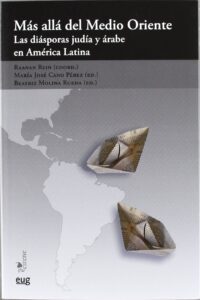
- Comunidades judías en América Latina / José Luis Piczenik.
- Encuentro y alteridad : vida y cultura judía en América Latina / Judit Bokser Liwerant y Alicia Gojman de Backal (coordinadoras) ; compilación de Hellen B. Soriano.
- Inquisición y judaizantes en América española (siglos XVI-XVII) / Ricardo Escobar Quevedo ; [prólogo de Charles Amiel].
- Poylishe Idn in Dorem-Ameriḳe : zaml-bukh tsum 25-yoriḳn yoyvl fun organizirṭn Poylishn Idnṭum in Argenṭine 1916-1941י.
- Los sefaraditas : España, el Imperio Otomano, La Argentina : tradición y cultura / María del Carmen Artigas.
- Los sefardíes en los dominios holandeses de América del Sur y del Caribe,1630-1750 / Günter Böhm.
- “Alumbrado.” (1937) México by Martínez del Río, Pablo.
- La familía Carvajal; estudio histórico sobre los judíos y la Inquisición de la Nueva España en el siglo XVI, basado en documentos originales y en su mayor parte inéditos, que se conservan en el Archivo General de la Nación de la cuidad de México, / por Alfonso Toro.
Lah nasyon : be-ʻiḳvot Yehude Sefarad u-Forṭugal be-ezor ha-Ḳaribi = La Nacion : the Spanish and Portuguese Jews in the Caribbean. לה נאסיון : בעקבות יהודי ספרד ופורטוגל באיזור הקאריב
Below is a brief documentary on Jews in Mexico.
Open Access: Colección iberoamericana of Biblioteca Virtual de Prensa Histórica
“Colección iberoamericana of Biblioteca Virtual de Prensa Histórica,” represents a treasure trove of open access materials that are hosted by the Virtual Library of Historical Press by Spain’s Ministry of Culture and Sports. The interface is easy to use and has the option to chose from Basque (Euskara), Catalan, Galego, Valencian, and English languages.
Below is a screenshot of the landing page of the Ibero-American collection of the site that might of research value to the users of this blog. At the time creating this blog post, we were having trouble accessing some components of this website. However, these can be fortunately accessed here.
Fair Academic Use Only!
Below is a screenshot of Diario de la Marina from La Habana.
